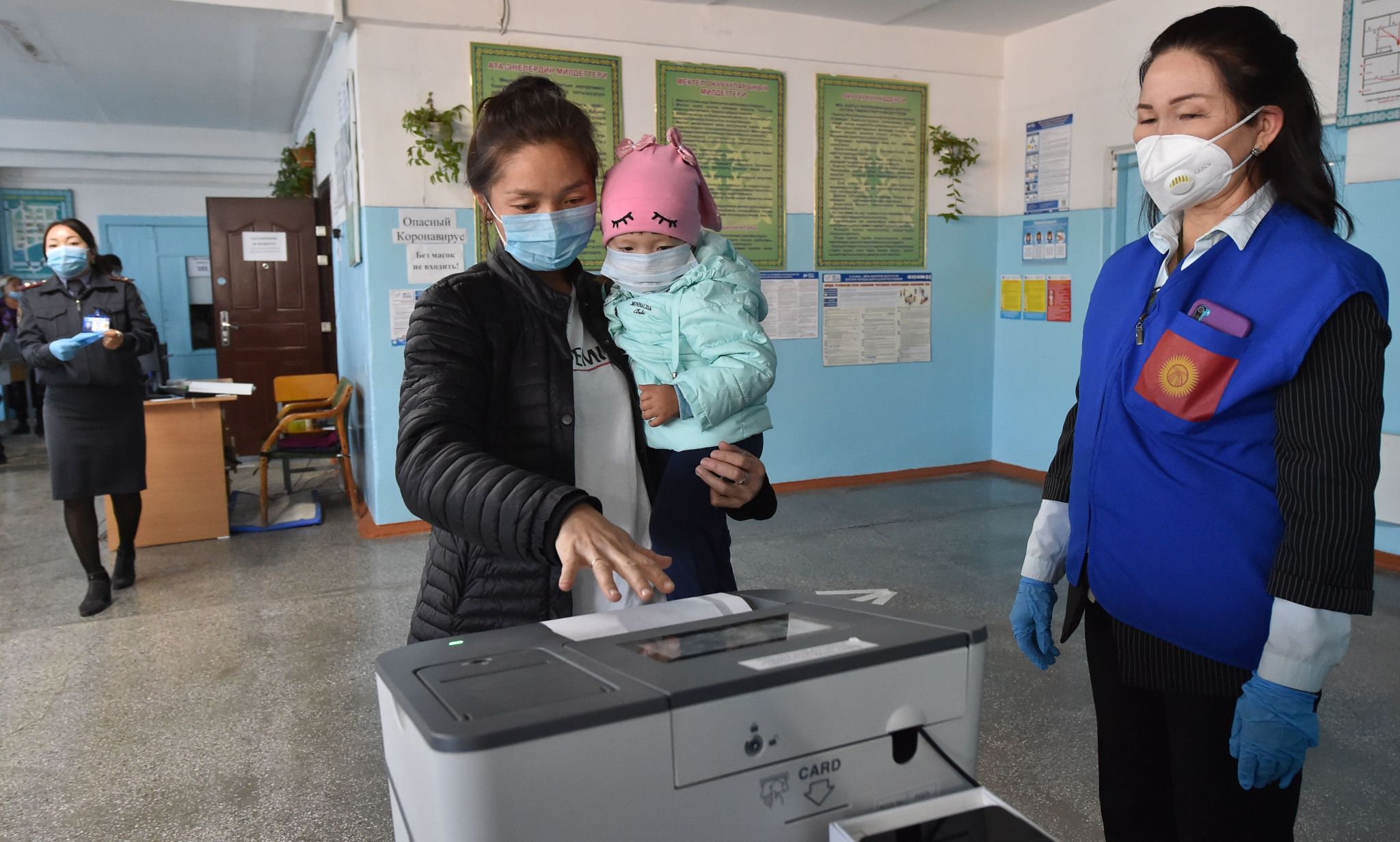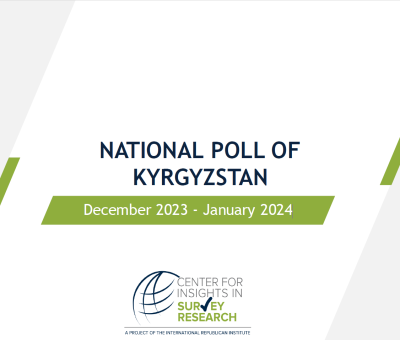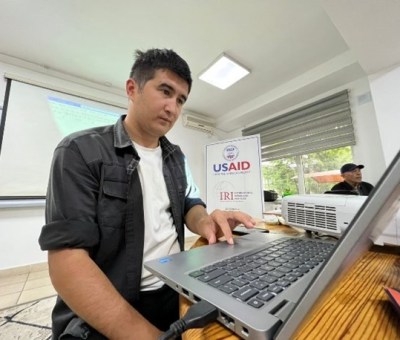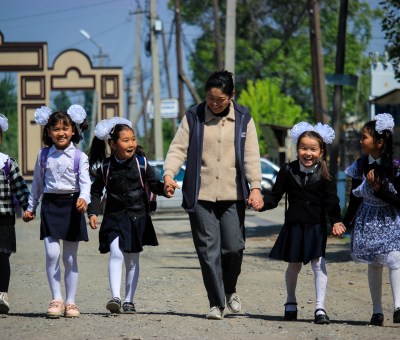IRI Kyrgyzstan Poll: Strong Majority Want Kyrgyz a…
Bishkek, Kyrgyzstan – A new poll conducted by the International Republican Institute’s (IRI) Center for Insights in Survey Research (CISR) in Kyrgyzstan shows a…
After two revolutions against authoritarian presidents (in 2005 and 2010), Kyrgyzstan now has a parliamentary government, but weak governing coalitions and endemic corruption remain problems. IRI is helping strengthen the consistency and quality of political parties and their work, building the skills of civil society activists, making politics more inclusive, and using public information outreach to improve transparency.

IRI has worked with the key political figures and decision-makers at every step of Kyrgyzstan’s transition from Soviet republic to democratic country, offering assistance with constitutional amendments, political party legislation, and laws insuring inclusive political participation. In its work with dozens of local political parties, IRI focuses on building party capacities to make them more responsive to constituent needs and active outside election cycles, stressing an issue-based approach to advocacy and campaigning. IRI training in the country pulls from not only past Kyrgyzstani experience, but expertise from across the region and several countries worldwide.
IRI supports local elected officials and candidates—most recently, to include the April 2021 election of nearly 75 percent of Kyrgyzstan’s women local council members. The result was achieved with women politicians’ follow up on IRI’s guidance on campaigning, for listening to and acting upon constituents’ needs, and communications outreach via political debates. To further promote political inclusion, IRI also works to empower local youth through running capacity building training and consultations, which help equipping young people for political roles. Supported by IRI, both women and youth activists ensure they promote local development and most salient issues raised by their communities find answers if not at local, then at the national government level. While responding to citizens’ needs, the activists gain recognition of their names among their future constituents — allowing for building their political base. In doing so, IRI also connects women and youth-candidates with its sub-national partners and network (such as Zhenskaya Demokraticheskaya Set or Women’s Democratic Network, as well as regional youth associations), with media outlets and campaign experts who enable the scale of reach, visibility, and effectiveness from candidates’ work in local communities.
IRI Kyrgyzstan bases its work with the political actors on the most relevant data collected and analyzed by local research firms and data vetted, checked, and released by IRI’s in-house survey and research, statistical accuracy of data, and external affairs experts. Since 2015, IRI Kyrgyzstan’s polls have informed presidential administrations, Members of the Jogorku Kenesh (the Parliament of Kyrgyzstan), and political parties. Additionally, the polls outreached other stakeholders including international organizations, civil society groups, media, and academia. The poll data on public perceptions of current developments in Kyrgyzstan, highlighting local population’s concerns and expectations from their political representatives. Data collected and release is timed to best serve elected officials’ needs – prior to critical for Kyrgyzstanis elections, or right after a major event in the country. That way, IRI attempts to better inform local political leaders of population’s demands and of support or disconnect with the current development course of government. Such data-driven cooperation with the national government deems most valued by the administration and other local stakeholders.
As the region is undergoing another stability test with crises in surrounding Afghanistan, China, and Russia, as well as the rampant spread of the COVID-19, Kyrgyzstan remains on its course, despite the persistent setbacks, to democratic governance with the support of IRI and its technical experts.
Bishkek, Kyrgyzstan – A new poll conducted by the International Republican Institute’s (IRI) Center for Insights in Survey Research (CISR) in Kyrgyzstan shows a…


Thirty-one-year-old Atabek Aripov has already had a quite successful career. Born and raised in Kyrgyzstan in the southwest region of…

Nazira Tezebaeza, a woman in her early 30s from southern Kyrgyzstan, had never imagined she would participate in politics, let…
